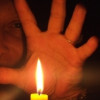What is the difference between Bipolar and Mental disorder?
What is the difference between Bipolar and Mental disorder?
There are a number of conditions that would fall under the category of "mental disorder". Bipolar disorder is only one of them.
Under the category of "mental disorder" comes things like "mood disorders", "personality disorders", and "anxiety disorders". The condition, "bipolar disorder", falls under the category of "mood disorders".Bipolar illness otherwise known as Bipolar affective disorder is a mental disorder. It is officially classified as such in ICD 10, the International classification of disorders by the World Health Organization. Bipolar disorder was formerly known as Manic depressive disorder.
Cheers,Mental disorder? If you look closely at the classification of mental disorders published by the American Psychiatric Association (APA) in its Diagnostic and Statisitical Manual version IV (DSM-IV) the majority of 'disorders' listed are actually behavioural and not solely mental. How is 'mental disorder' to be defined? When does 'feeling a bit down' become depression? When does being excited or elated become 'manic'.
Formerly known as manic-depression, bipolar affective disorder is characterised by wide mood swings from excitability and insomnia to depression. Both extremes vary in both intensity and length.
According to DSM-IV there are several types of bipolar disorder each with differing diagnostic criteria: for example Bipolar Type I is characterised by 'the occurrence of one or more Manic Episodes or Mixed Episodes. Often individuals have also had one or more Major Depressive Episodes'. (DSM-IV Categories 296.0x - 296.89)
Who hasn't experienced either manic or depressive symptoms at some time? Does this mean it is a mental disorder or is it sometimes just a normal reaction to events and situations, whether the cause is known or unknown, obvious or hidden?
The difference between bipolar disorder and mental illness according to the criteria classified by the APA and generally accepted by tradtional mental health professionals is simply that there is a huge range of mental disorders and bipolar is just one of the many.
Alternatively, it could be argued that bipolar disorder is not a discrete disorder, if it is a disorder at all. Instead of trying to neatly classify and pigeonhole a patient into a particular category of disorder, we should look more closely at the individual and their presenting symptoms in a wider personal and social context. It may be that the individual is less sick than an irrational society that seeks to label what in many contexts could be defined as perfectly rational behaviour.
DSM-IV Under Review http://hubpages.com/hub/DSM-IV-reviewLisa HW is correct. I am a Psychology/Social Science major. Bipolar is one of many disorders. In bipolar disorder, the behavior swings from manic to depressed with nothing in between. They have highs and lows.
There is also Unipolar, which is usually depressed all the time.There is no difference as far as I know. Sometimes I feel like a revolving door not knowing what end is up. Bipolar is a mental disorder or chemical imbalance, Mental Illness is much more deeper. is it not?
There are many mental disorders. Bipolar disorder is a mental illness in which one faces unpredictable mood swings ranging from depressive symptoms to manic symptoms. It is not necessary that a person has depression to be labeled as bipolar disorder, episodes of mania are sufficient. The most frequent age of onset is between 20 and 30 years but the variations are still present.
- Millionheirposted 13 years ago
0
Bipolar is classified as a mental disorder but actually growing scientific evidence is claiming it's more of an emotional. In bipolar individuals under stress experience highs and lows that impact their judgment.
Related Discussions
- 7
Is Manic Depression the same thing as bipolar disorder
by cpettijo 13 years ago
Is Manic Depression the same thing as bipolar disorder
- 50
Why do some people not view bipolar disorder as a medical disorder?
by christalluna1124 13 years ago
Why do many peolple believe that persons suffering from mental illness, in my case bipolar disorder, are not suffering from a medical condition? Instead they believe we are demon possed and urged us to stop our medications and medical treatment. This is the worst advice to give aperson who suffers...
- 111
Weekly Topic Inspiration: Diseases, Disorders, and Conditions
by Simone Haruko Smith 11 years ago
We all encounter diseases, disorders, and conditions some way or another- usually firsthand, though even more frequently through friends, coworkers, and family members. What have you learned from your experience that might help others suffering from a particular condition? Share your knowledge and...
- 4
Is it true that if you have a mental disorder it can get worse in your 30's?
by Crochetliens 11 years ago
Is it true that if you have a mental disorder it can get worse in your 30's?I remember hearing this and I suffer from depression and anxiety and it has always been a fear of mine that it could get worse. I also have been feeling more depressed lately but I have been hoping it's temporary.
- 17
I have Bipolar Disorder; Will I Always Have To Take Medications To Be Normal?
by Jennitasia 13 years ago
I have Bipolar Disorder; Will I Always Have To Take Medications To Be Normal?I am asking for advice on how to manage Bipolar Disorder without medications. I currently take up to 7 different medications! I am currently out of 4-5 of them(due to financial issues)! I am slowly going downward! I need...
- 6
Is hoarding a mental disorder that is passed from generation to generation, or a
by tlpoague 11 years ago
Is hoarding a mental disorder that is passed from generation to generation, or a learned trait?This is a debate in my family. Some believe that extreme frugal living/hoarder is a mental disorder that is passed from generation to generation, while others think it is a learned trait that can be...











